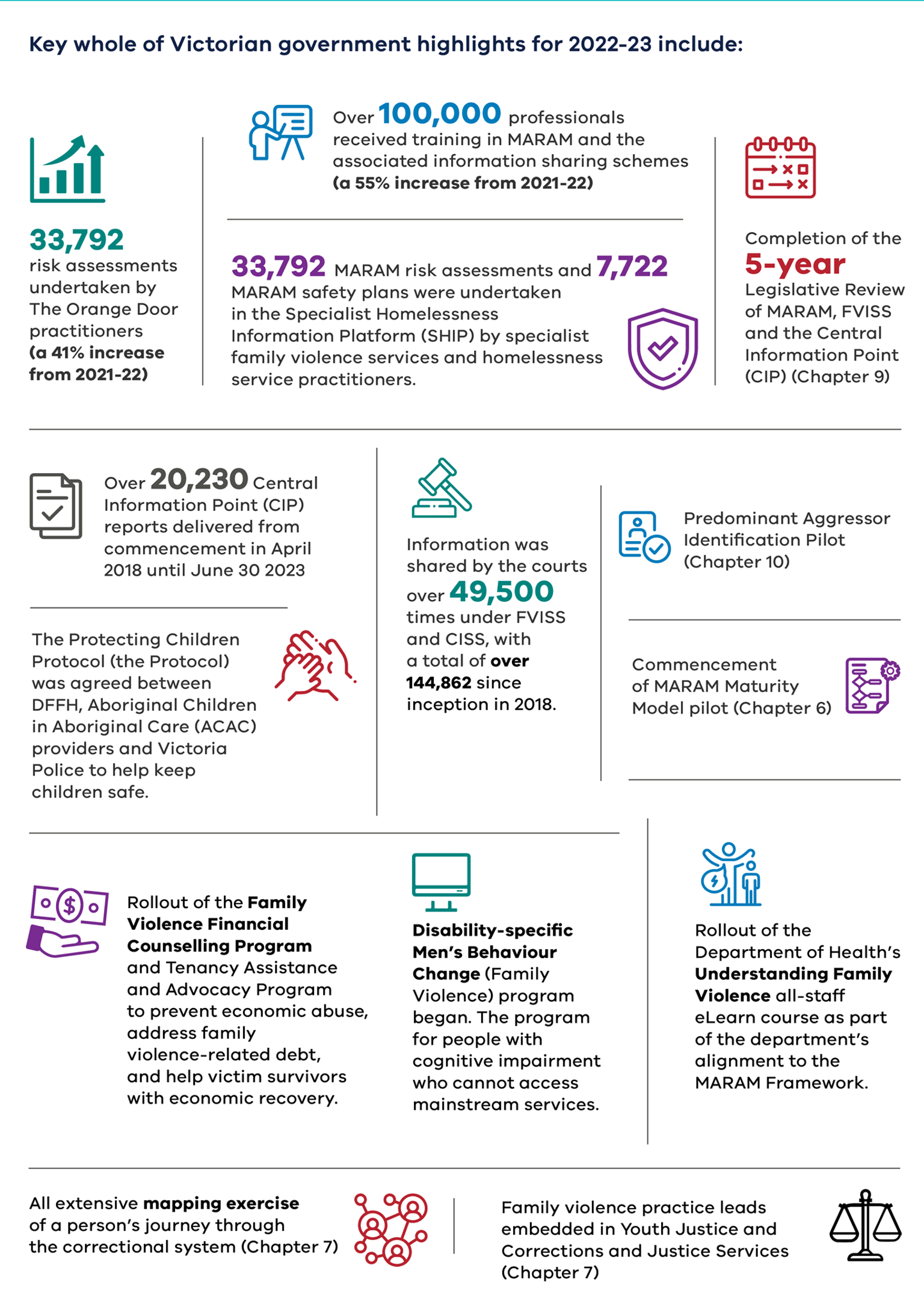Key whole of Victorian Government highlights for 2022–23 include:
- 33,792 MARAM risk assessments undertaken by Tools for Risk Assessment and Management (TRAM) (a 41% increase from 2021-22). TRAM is used by practitioners in the Orange Door and a select number of specialist family violence and generalist agencies for risk assessment and safety planning
- Over 100,000 professionals received training in MARAM and the associated information sharing schemes (a 55% increase from 2021–22). Over 12,000 Victoria Police staff completed training, and over 81,000 training units were undertaken by Department of Health workforces
- 41,231 MARAM risk assessments, and 7,722 MARAM safety plans were undertaken in the Specialist Homelessness Information Platform (SHIP) by specialist family violence services and homelessness service practitioners.
- Over 20,230 Central Information Point (CIP) reports delivered from commencement in April 2018 until 30 June 2023
- Information shared by the courts over 49,500 times under the Family Violence Information Sharing Scheme (FVISS) and the Child Information Sharing Scheme (CISS), with a total of over 144,862 since inception in 2018
- Completion of the 5-year Legislative Review of MARAM, FVISS and the CIP (Chapter 9)
- The commencement of Victoria Police’s Predominant Aggressor Identification pilot (Chapter 10)
- The commencement of MARAM Maturity Model pilot (Chapter 6)
- The Protecting Children Protocol (the Protocol) updates agreed between DFFH, Aboriginal Children in Aboriginal Care (ACAC) providers and Victoria Police to align to MARAM
- Commencement of the Disability-specific Men’s Behaviour Change (Family Violence) program. The program is aimed at perpetrators with cognitive disability who face barriers in accessing mainstream family violence and support services
- The rollout of the Department of Health’s Understanding Family Violence all-staff eLearn course as part of the department’s alignment to the MARAM Framework
- The rollout of Family Violence Financial Counselling Program and Tenancy Assistance and Advocacy Program to prevent economic abuse, address family violence-related debt, and help victim survivors with economic recovery. 3,806 victim survivors of family violence accessed financial counselling in 2022-23 through the Family Violence Financial Counselling Program
- An extensive mapping exercise of a person’s journey subject to Community Correctional Services (CCS) supervision or custody to understand how and when MARAM will be implemented and integrated into the corrections system (Chapter 7)
- Family violence practice leads embedded in Youth Justice and Corrections and Justice Services (Chapter 7).
Updated
